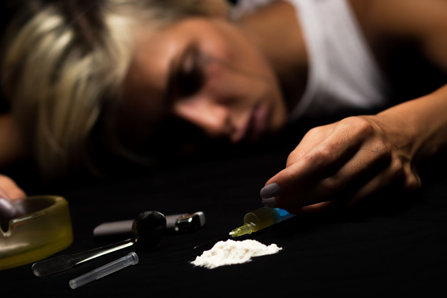Don’t Wait for it to Become Addiction

Many of us have a friend who drinks a little too much or maybe a family member you hear is smoking pot daily or using cocaine on the weekends. Is there something you can do to help these people?
Most people find it uncomfortable to confront a friend or family member’s alcohol or drug use. The confrontation rarely goes well, and you may feel that saying something will not really do any good and could injure the friendship or family relationship. Some people even subscribe to the idea that all young people experiment or it’s just “a phase” or “rite of passage” they are going through.
The truth is, for many people, drug use progresses to some level of addiction whether gradual or overnight. That is the nature of drugs and even alcohol—the more you use, your tolerance builds up and the more of the drug you need to get the same high. And if you quit using it, withdrawal and cravings kick in. Before you know it, you’re caught in the grip of full-blown addiction.
If You Wait to See if it Gets Worse, It Might be Too Late
When someone is addicted to a drug or alcohol—particularly with drugs such as opioids—getting the day’s drug is more important than anything else in their life. A person will work very hard to hide their addiction in order to keep people from interfering. If it’s gotten to the point that you suspect something, it’s probably worse than you think.
Early Intervention Can Mean an Easier Recovery
The heavier the addiction, the harder it is to overcome. So the time to act is when you first suspect a problem. Now, those are easy words to say, but anyone who has tried to help an addict knows that an offer of assistance is rarely welcomed. Most of the time, you are faced with denial and sometimes outright anger or blame. This is a common reaction and is part of the battle to try to get someone help.
Not Sure What to Do?
How do you bring up the subject. Where do you start?
1. Try to catch them when they are likely to be fully sober.
Or as sober as possible. And choose a location where you won’t be distracted or disturbed.
2. Be prepared for them to be evasive, hostile, or dishonest.
Very, very few people will admit the problem right off the bat. They may blame you for some imagined or long-gone fault. Anything to throw you off the scent. You will have to patiently outlast an unreasoning or irrational response from that person. Remember that at heart, they know exactly what you are talking about and they don’t want to participate in drug or alcohol use that’s harming themselves. But they have lost their power to choose another path. That’s where you come in.
3. Don’t be accusative.
Approach the whole subject from the viewpoint of wanting to help them rather than taking the opportunity to point out all their faults. Leave their faults and mistakes for some other time.
4. Invite their participation and communication.
Ask them how they have been doing. Listen patiently. The more you let them talk about themselves and how they are doing, the more open they may be to accepting your ideas.
5. When you start asking them about alcohol or drug use, be specific.
Come into this conversation with specifics on when they had problems related to their drug or alcohol use. Be very sure you do not exaggerate any of these incidents because that would give them an excuse to blow out of the conversation.
All you’re trying to do is give them the encouragement they need to really look at the harm that’s been happening and admit that they could use some help. At that point, don’t pounce. Gently offer to help. Tell them about any resources you’ve found and perhaps you can offer to visit them together.
It’s a delicate subject—one that’s even tough for professionals. If you don’t succeed the first time, don’t give up, you know this person needs help. Be gentle, be caring and be persistent.
If at any time you need help with someone who’s addicted, give us a call.


